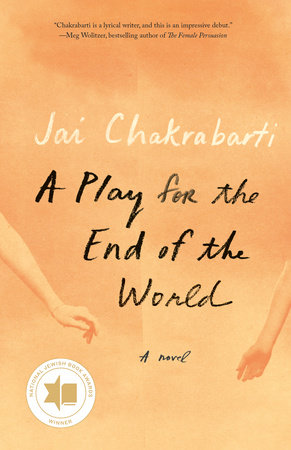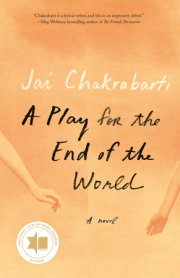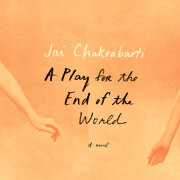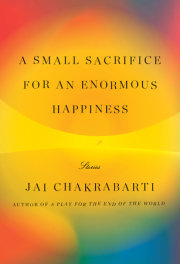The Wanderer
Calcutta--June 1972
Morning in Calcutta. The Foreigners queue was filled with longhaired imitators of Ram Dass, a flock of missionaries, and young businessmen pursuing the promise of an urban India. The other line was crammed with locals carrying suitcases stuffed with a country in gifts. All were eager to move past the chain-smoking customs officer and be on their way.
Except Jaryk wasn’t in a hurry. A heaviness in his knees held him at the Wait Till Call circle until a mustachioed guard with a shoulder-slung rifle prodded him forward. Jaryk paused at the immigration booth with his green suitcase, a sturdy, ugly piece of luggage that was seeing its first taste of the East. It was Misha’s suitcase, so he carried it with no small amount of pride.
“Purpose of visit?” the immigration officer asked him.
He was here to retrieve and carry Misha’s remains back to Brooklyn, but no one would understand that. “Tourism,” he said. “Sights of the country.”
He was stamped and cleared and followed the herd out of the frosted doors of the airport. Outside, the air was a dense concentration of humidity and heat. As soon as his shoes touched the asphalt, he felt he’d come overdressed. Under the humid cover, the crowd swelled and dispersed, swelled to disperse. At first, it seemed like a single leviathan, colorful and noisy, but then he spotted a pattern. Lines of men and women waited to greet their loved ones while other lines queued to enter the airport. The family members shuffled nervously, checking each face, until the match was found; then, not a moment wasted: the whole group would absorb the arrived, and all together they’d head for the road.
He watched his fellow passengers make their way to the taxi stand. Their journey was first complicated by the ambush of men hawking marble statues and shawls, further complicated by the group of boys and girls who smiled, crooned, and cried their way to American dollars. Once the tourists made it through, they were swallowed by a row of taxi drivers, each crying out his own warring price.
When they’d last been together in New York, Misha had told him the first day would be difficult, but this was more. This was the madness brought on by too many people. He took off his shoes and socks and waited in the shade until all the passengers had left. There was no hurry; he was good at waiting.
It took an hour, but the arrivals crowd eventually thinned out. He was left with the hawkers, who sat on the opposite curb and passed a cigarette around. The panhandling children drew a square of hopscotch in the middle of the road, and the winners of each round ate candies they’d begged off a matronly passenger on her way to the taxi stand.
The hawkers noticed him and yelled something in his direction--a curse, most likely, guttural and foul--and laughed and enjoyed their cigarette and cards. It was still too hot for shoes, so he stayed barefoot, though as soon as he left the shade his soles felt like they were on fire. This too shall pass. The mantra came to him easy and free, and he held on to it as a group of children surrounded him. One prodded him in the belly and giggled. He tried to smile back, but he didn’t have it in him. Instead, he handed out the ballpoint pens he’d brought as alms and, when they wouldn’t leave, all of the American coins in his pocket.
When he saw a taxi pull up to the curb, he skipped toward it. This driver was better dressed than any of the other men he’d seen, and he wore an air of superiority, as if he didn’t need the business at all. “You are going to burn your feet,” the driver said in a crisp British English. He was middle-aged, with a protruding belly, thick glasses cut square, a dark corduroy jacket patched at the elbows, and white, nylon slacks. Why he wasn’t sweating through his clothes was a mystery. The driver cocked his head and asked, “Where can I take you?”
Jaryk took a strip of paper from his coat. It had become sweat stained to the point where he could barely make out the letters. “Sudder Street,” he said.
As they turned off the airport road and onto the bypass, a patch of cloud opened up. At first, it was only a bit of sweet rain. Through the half-open window, he let his fingers get wet in it, but at the next major intersection, with no warning, the adjacent clouds joined in to make a full monsoon. The stray dogs on the street hid under canopies; the traffic slowed in a single heartbeat; a line of coconut trees swayed in the same direction; five women on the sidewalk, all in red saris, took off their shoes and sprinted. This was the India of the flesh. His sweat proved it, the stink released by the rain proved it, that smell of rot and burning bamboo.
“Are you staying with family here?” The driver squinted and searched for the house number on Sudder Street.
“No, it’s just a guesthouse.”
They found a boarded-up building with a sign in English, New Guest Stay, hanging off the second-floor balcony like a loose tooth. “This was in the guidebook and I called,” Jaryk said. “Are you sure this is the right street?” The rain had persevered until the streets were ankle-deep with water. With a suitcase and a sore back, he didn’t like his odds. Jaryk flipped through his guidebook and pointed. “Okay, what about this place? The Park Hotel?”
“You can pay for Park Hotel?”
From the way the driver was looking at his clothes, Jaryk suspected the place would dig a hole in his budget, but he didn’t like the accusation of limited means.
“You know, sir,” the driver continued, “there is one place, more authentic, with cheaper and better living. Not so far.” The driver took off his glasses and smiled. Jaryk focused on the outline of the man’s face: it was a perfect oval, a shape that made him want to trust.
“Authentic,” he said, against his better judgment. “I like that.”
He had agreed, but after a while it seemed they were heading back toward the airport, toward the open stretches of land that had made the city seem not like a city, and several times Jaryk almost asked him where they were going, only to let jet lag hold his tongue.
They swerved off onto a narrow dirt road. The driver said, “We are almost arrived.”
Down the road a zigzag of mud huts. Bare-chested men under the shade of banana leaves. By the tube well, a row of women waiting to draw water, saris soaked, and by the trash dump, a hangout the driver identified as the suburb’s only phone station.
Children played in the mud, footballs bounced knee to knee. He recognized a weariness in these boys and girls, a lethargy in how they shuffled from the road to make room for the car. They looked like they were used to being hungry, and when hunger was present trouble was never far behind. Still, he was a head taller than any grown man he’d seen. If things got murky, he could hold his own.
The driver began whistling a tune, and as he moved from melody to melody, the rain eased up. Now it was the quiet sun above them again, boiling the roof of the cab. Jaryk thought about what he had left behind, which was Lucy. Lucy, and not much else. By now, she would have found his apartment empty, along with his letter. She would’ve called Rabbi Samuel and the rabbi would tell her what little he knew, or maybe she wouldn’t call anyone at all--that was the darker possibility: she’d come to loathe him without knowing the whole story.
The driver slowed to a stop. They had reached the end of the road.
“We are arrived,” said the driver. “P. K. Pal Guest House.”
The house before them had outgrown itself: it was three floors of brick, and the top two levels looked to have been afterthoughts. While the foundation was the same sturdy whitewash stone Jaryk had seen in so many other houses along the road, the second floor was a light shade of rose, and the third level, which jutted out at a nearly perpendicular angle to avoid pressing against the limbs of a nearby coconut tree, bore no resemblance to either, being a roofless structure with holes to mark future windows.
“This looks like someone’s house,” Jaryk said.
“It is the house of P. K. Pal. I am Prosanto Kumar Pal, and sometimes, when the feeling is right, we take guests.” Prosanto Pal smiled and revealed a row of teeth so perfect they could only be false. “For fifteen rupees, you get a large room plus the cooking of Mrs. P. K. Pal. But please, if you do not want, I can drive you to the Park Hotel for no extra cost.”
Jaryk fingered the loose stash of rupees in his pocket. He couldn’t afford any sort of fancy hotel. Fifteen rupees and home cooking were sounding more and more like the right choice. Also, there were the children who ran out from the arms of their mother. A boy and a girl. The girl with two long pigtails and pink sandals. The boy with thick glasses a size too big; when he ran to his father, he held on to them with one hand.
Mr. Pal received their hugs and reciprocated with kisses. “Let me introduce my beloved, Mrs. Aditi Pal, and my little ones, Avik and Priya.”
“Please, please come inside,” said Mrs. Pal, who was at least a decade younger than her husband and more attractive, with her aquiline nose and queenly cheekbones.
For a moment the wariness Jaryk had felt dissipated, though a darker feeling took its place. Would he ever have what Mr. Pal had? He joined the Pals in their living room, which was spacious but lacking in furniture. As lunch was prepared, everyone sat on pillows around a marble table. Mrs. Pal kept her head covered, ran in and out of the kitchen, and began to cook something that reeked of pepper and spice. “Smells delicious,” he said, though spicy food had always felt like a burden on his tongue.
Aditi Pal drew her sari close to her hips but gave him a cautious smile. Her husband sat on a wicker mat reading the paper, rocking a little as he read. With his free arm, Mr. Pal worked a hand fan to create a breeze for Avik and Priya.
“This flood of men-women-children,” he said to Jaryk. “They will be the ruin of us. Surely even Americans know this. First we have peasants revolting in Naxalbari, wanting their own plot to till. Now, since Bangladesh is its own country, there are Hindu immigrants from across the border. Just like the Naxals, they all want their own land, but where is the room?”
Jaryk didn’t respond. He’d heard the news, at first, as if it were the weather report of a foreign country: the year before, March of 1971, Bangladesh found nationhood; people fled, either into or out of the country. In the streets, there was murder and there was celebration. The New York Times covered all of it, but mostly on page 12. It wasn’t till Misha became serious about their India plan that he’d begun to pay more attention.
“But enough politics. I hope you are feeling free here. I have hosted Americans before. They come with long hair. Ask about dharma. Is that why also you are here? For religion?”
“No, I’m not much for God,” Jaryk said. “And I’m not really American.”
“But your last name, don’t mind, I saw it on your luggage, is Smith. Is that not American?”
He remembered that winter when he and Misha had crossed over from Europe into the country that had seemed till then to be only a fable--America--where an officer with too little time on his hands had asked him to state his name and Jaryk had glanced at the man’s name tag and repeated it back, thinking a new last name key to a new life. The officer had blinked at hearing his own name but had complied, writing it into history: Jaryk Smith, originally from Warsaw, Poland, arrived in the United States of America, Mar. 1946.
“When I came to America, I chose my own last name,” Jaryk now explained. “Smith sounded right for the job. Originally, I’m from Europe.”
“Oh,” Mr. Pal said, seeming a little deflated by the news. “Perhaps then you are here for business? We see European men in suits, more and more, these days.”
“No, it’s not that, either. The truth is that I’m a fakir, an every-year wanderer.” Behind Mr. Pal’s questions, he could feel the tide of a stranger’s curiosity, so with every question, he felt himself tightening. With Mr. Pal, there was no reason to go beyond the polite give-and-take.
“Ah, I see, a fakir.” Mr. Pal announced the word, the profession, with great seriousness. “Please note, Mr. Smith, I am not only a taxi driver. I am also a graduate of Calcutta University. Honors in philosophy. These eyes--” Mr. Pal took off his glasses-- “are so poor because of the many books I have read in my time.”
Jaryk lumbered over the information. Mr. Pal had airs and he drove with his face too close to the windshield, as if he were getting the hang of the road, but what did Jaryk know of Indian cab drivers? What did he know of India, for that matter? But he said to Mr. Pal, “I assumed as much. You struck me as a scholar from the first.”
As Mrs. Pal brought out the meal, the children grew quiet. Mr. Pal passed him rotis and bowls of lentils and scooped the first pieces of chicken onto his plate. “You are our honored guest,” he said.
Jaryk had little experience eating with his hands, so he watched Mr. Pal attack his chicken with thumb and forefinger before he tried it himself. There was an added flavor this way, but it was messier and more time-consuming. While Mr. Pal lent a certain dignity to the process, Jaryk’s wrists were soon stained with the turmeric-infused sauce. He tried to use his left hand to clean the right, but it didn’t help. No problem, he told himself. When in Rome.
“Have you decided how you shall tour our beautiful country?” Mr. Pal asked.
“I’m going to Shantiniketan,” he said, searching for a napkin.
“Shantiniketan?” Mr. Pal said. “It’s a little remote, but I suppose there is an appeal because of Tagore’s school. Also, the natural surroundings.”
“And what shall you do there?” Mrs. Pal said.
Copyright © 2021 by Jai Chakrabarti. All rights reserved. No part of this excerpt may be reproduced or reprinted without permission in writing from the publisher.











